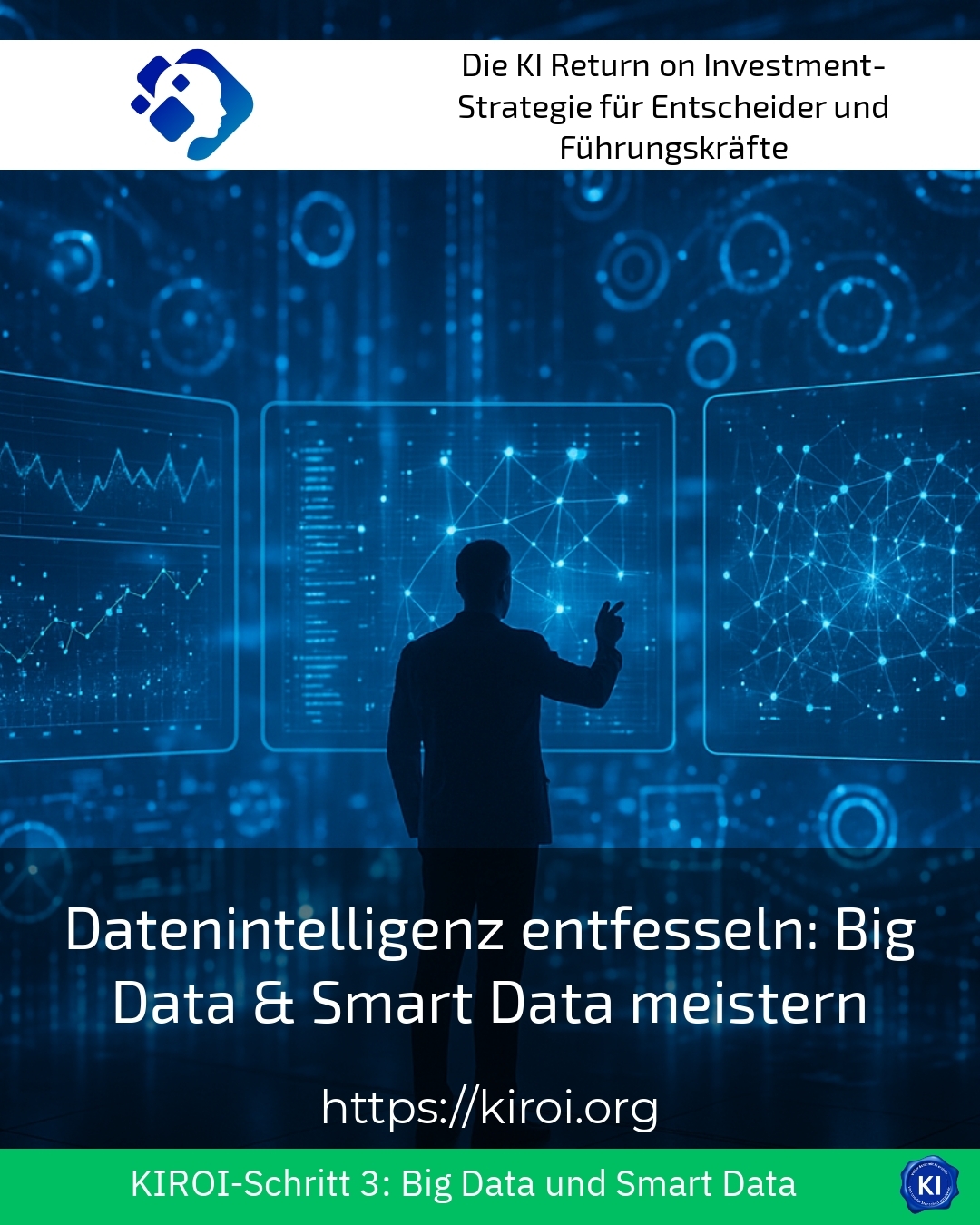In today's business world Data intelligence plays a central role. Companies are faced with the challenge of not only collecting as much data as possible from the flood of information, but also analysing it in a targeted manner and converting it into clearly usable insights. This is where the wheat is separated from the chaff: while big data describes the sheer volume of data, the term Data intelligence for the targeted use of smart data, i.e. high-quality, validated and contextualised information. In this article, we explain how companies can unleash data intelligence and create sustainable added value through the sensible use of big and smart data.
Data intelligence: the difference between big data and smart data
Big data comprises enormous volumes of data that are often unstructured and diverse. This flood of data comes from various sources, such as customer data, machine sensors or social media. However, the amount of data alone does not guarantee any benefit. This is where Data intelligence It transforms big data into smart data through analysis, filtering and contextualisation - in other words, into high-quality, relevant information.
An example from the retail sector shows how data-intelligent systems help to adjust stock levels to actual demand. This can prevent overstocking and make supply chains more efficient. In the manufacturing industry, smart data enables predictive maintenance of machines, which minimises expensive downtime. Insurance companies also use these methods to assess damage risks more accurately and offer customised policies.
BEST PRACTICE with one customer (name hidden due to NDA contract) A production company was able to use data-intelligent analyses to better predict the maintenance points of its systems and reduce planned downtimes by 25 %. This involved analysing sensor data in real time and reacting immediately to deviations from previously defined parameters.
How data intelligence increases efficiency
Companies in all sectors report that big data alone is often overwhelming and generates large amounts of unusable or redundant data. By focussing on smart data, on the other hand, targeted insights can be gained. This makes it possible to customise marketing campaigns and target customers more precisely.
A telecommunications provider uses data intelligence to recognise patterns from the many customer contacts and usage data. The result is customised offers that promote customer loyalty and reduce churn. In e-commerce, too, intelligent data analyses are used to evaluate user behaviour in detail in order to optimise product recommendations and increase conversion rates.
BEST PRACTICE with one customer (name hidden due to NDA contract) in online retail, data-intelligent tracking of the customer journey led to a 20 % improvement in conversion rates. The combination of usage data and targeted analysis helped to create personalised offers and campaigns that met customer needs more precisely.
Data intelligence in practice: industry examples and applications
The range of possible applications of Data intelligence is far-reaching. In the healthcare sector, for example, patient data is analysed in order to develop personalised therapies and preventive measures. This makes it possible to better assess the risk of chronic diseases and make appropriate recommendations.
In logistics, too, data-intelligent systems help to optimise routes, shorten delivery times and use resources more efficiently. Sensor information from vehicles or warehouse stocks is processed in real time and used to make better decisions. In the financial sector, data-intelligent algorithms enable fraud attempts to be recognised and the risk assessment of loan applications.
BEST PRACTICE with one customer (name hidden due to NDA contract) In the area of insurance, data-intelligent analyses were used to personalise premium rates and increase customer satisfaction at the same time. Data from various sources was linked in order to better assess the individual risk of damage and develop customised offers.
Practical tips for the successful use of data intelligence
Firstly, companies should always focus on the quality of their data. Reliable analyses can only be created through regular checks and cleansing. Secondly, it is advisable to use modern technologies such as artificial intelligence and machine learning to efficiently recognise patterns in complex data.
Thirdly, it is important to link the insights gained closely to strategic goals. Data intelligence is not an end in itself, but should generate concrete recommendations for action that improve processes and secure competitive advantages. Finally, an interdisciplinary team of data experts and department members is helpful in managing the flood of data profitably.
My analysis
To summarise Data intelligence The new technology offers decisive added value by bridging the gap between the sheer volume of data (big data) and usable information (smart data). This interplay enables companies to act in a more targeted, efficient and forward-looking manner. The combination of technology, quality assurance and technical expertise strengthens competitiveness and paves the way for innovative business models and customer-oriented solutions.
Further links from the text above:
Smart data: How intelligent data is shaping our future
Big data vs. smart data: is more always better?
Unleashing data intelligence: Big Data & Smart Data for Decision Makers
Big data: the utilisation of large amounts of data
Smart data: definition, application and difference to big data
For more information and if you have any questions, please contact Contact us or read more blog posts on the topic Artificial intelligence here.















